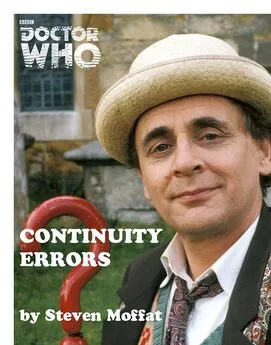Steven Dubner - Freakonomics
- Название:Freakonomics
- Автор:
- Жанр:
- Издательство:неизвестно
- Год:неизвестен
- ISBN:нет данных
- Рейтинг:
- Избранное:Добавить в избранное
-
Отзывы:
-
Ваша оценка:
Steven Dubner - Freakonomics краткое содержание
Freakonomics - читать онлайн бесплатно полную версию (весь текст целиком)
Интервал:
Закладка:
he recalls, “and the seller’s agent kept telling me what a good deal I was getting because the market was about to zoom. As soon as I signed the purchase contract, he asked me if I would need an agent to sell my previous Stanford house. I told him that I would probably try to sell without an agent, and he replied, ‘John, that might work under normal conditions, but with the market tanking now, you really need the help of a broker.’”
Within five minutes, a zooming market had tanked. Such are the marvels that can be conjured by an agent in search of the next deal.
Consider now another true story of a real-estate agent’s information abuse. The tale involves K., a close friend of one of this book’s authors. K. wanted to buy a house that was listed at $469,000. He was prepared to offer $450,000 but he first called the seller’s agent and asked her to name the lowest price that she thought the homeowner might accept. The agent promptly scolded K. “You ought to be ashamed of yourself,” she said. “That is clearly a violation of real-estate ethics.”
K. apologized. The conversation turned to other, more mundane issues. After ten minutes, as the conversation was ending, the agent told K., “Let me say one last thing. My client is willing to sell this house for a lot less than you might think.”
Based on this conversation, K. then offered $425,000 for the house instead of the $450,000 he had planned to offer. In the end, the seller accepted $430,000. Thanks to his own agent’s intervention, the seller lost at least $20,000. The agent, meanwhile, only lost $300—a small price to pay to ensure that she would quickly and easily lock up the sale, which netted her a commission of $6,450.
So a big part of a real-estate agent’s job, it would seem, is to persuade the homeowner to sell for less than he would like while at the same time letting potential buyers know that a house can be bought for less than its listing price.
To be sure, there are more subtle means of doing so than coming right out and telling the buyer to bid low. The study of real-estate agents cited above also includes data that reveals how agents convey information through the for-sale ads they write. A phrase like “well maintained,” for instance, is as full of meaning to an agent as “Mr. Ayak” was to a Klansman; it means that a house is old but not quite falling down. A savvy buyer will know this (or find out for himself once he sees the house), but to the sixty-five-year-old retiree who is selling his house, “well maintained” might sound like a compliment, which is just what the agent intends.
An analysis of the language used in real-estate ads shows that certain words are powerfully correlated with the final sale price of a house. This doesn’t necessarily mean that labeling a house “well maintained” causes it to sell for less than an equivalent house. It does, however, indicate that when a real-estate agent labels a house “well maintained,” she is subtly encouraging a buyer to bid low.
Listed below are ten terms commonly used in real-estate ads. Five of them have a strong positive correlation to the ultimate sales price, and five have a strong negative correlation. Guess which are which.
Ten Common Real-Estate Ad Terms
Fantastic
Granite
Spacious
State-of-the-Art
!
Corian
Charming
Maple
Great Neighborhood
Gourmet
A “fantastic” house is surely fantastic enough to warrant a high price, isn’t?
What about a “charming” and “spacious” house in a “great neighborhood!”? No, no, no, and no. Here’s the breakdown:
Five Terms Correlated to a Higher Sales Price
Granite
State-of-the-Art
Corian
Maple
Gourmet
Five Terms Correlated to a Lower Sales Price
Fantastic
Spacious
!
Charming
Great Neighborhood
Three of the five terms correlated with a higher sales price are physical descriptions of the house itself: granite, Corian, and maple. As information goes, such terms are specific and straightforward—and therefore pretty useful. If you like granite, you might like the house; but even if you don’t, “granite” certainly doesn’t connote a fixer-upper. Nor does “gourmet” or “state-of-the-art,” both of which seem to tell a buyer that a house is, on some level, truly fantastic.
“Fantastic,” meanwhile, is a dangerously ambiguous adjective, as is “charming.”
Both these words seem to be real-estate agent code for a house that doesn’t have many specific attributes worth describing. “Spacious” homes, meanwhile, are often decrepit or impractical. “Great neighborhood” signals a buyer that, well, this house isn’t very nice but others nearby may be. And an exclamation point in a real-estate ad is bad news for sure, a bid to paper over real shortcomings with false enthusiasm.
If you study the words in the ad for a real-estate agent’s own home, meanwhile, you see that she indeed emphasizes descriptive terms (especially “new,”
“granite,” “maple,” and “move-in condition”) and avoids empty adjectives (including “wonderful,” “immaculate,” and the telltale “!”). Then she patiently waits for the best buyer to come along. She might tell this buyer about a house nearby that just sold for $25,000 above the asking price, or another house that is currently the subject of a bidding war. She is careful to exercise every advantage of the information asymmetry she enjoys.
But like the funeral director and the car salesman and the life-insurance company, the real-estate agent has also seen her advantage eroded by the Internet. After all, anyone selling a home can now get online and gather her own information about sales trends and housing inventory and mortgage rates. The information has been set loose. And recent sales data show the results. Real-estate agents still get a higher price for their own homes than comparable homes owned by their clients, but since the proliferation of real-estate websites, the gap between the two prices has shrunk by a third.
It would be naïve to suppose that people abuse information only when they are acting as experts or agents of commerce. Agents and experts are people too—
which suggests that we are likely to abuse information in our personal lives as well, whether by withholding true information or editing the information we choose to put forth. A real-estate agent may wink and nod when she lists a “well-maintained” house, but we each have our equivalent hedges.
Think about how you describe yourself during a job interview versus how you might describe yourself on a first date. (For even more fun, compare that first-date conversation to a conversation with the same person during your tenth year of marriage.) Or think about how you might present yourself if you were going on national television for the first time. What sort of image would you want to project? Perhaps you want to seem clever or kind or good-looking; presumably you don’t want to come off as cruel or bigoted. During the heyday of the Ku Klux Klan, its members took pride in publicly disparaging anybody who wasn’t a conservative white Christian. But public bigotry has since been vastly curtailed.
(Stetson Kennedy, now eighty-eight years old, attributes this evolution in some part to his long-ago “Frown Power” campaign.) Even subtle displays of bigotry, if they become public, are now costly. Trent Lott, the majority leader of the U.S.
Senate, learned this in 2002 after making a toast at a one hundredth birthday party for Strom Thurmond, his fellow senator and fellow southerner. Lott made a reference in his toast to Thurmond’s 1948 campaign for president, which was built on a platform of segregation; Mississippi—Lott’s home state—was one of just four states that Thurmond carried. “We’re proud of it,” Lott told the partygoers. “And if the rest of the country had followed our lead, we wouldn’t have had all these problems over all these years either.” The implication that Lott was a fan of segregation raised enough of a fury that he was forced to quit his Senate leadership post.
Even if you are a private citizen, you surely wouldn’t want to seem bigoted while appearing in public. Might there be a way to test for discrimination in a public setting?
Unlikely as it may seem, the television game show The Weakest Link provides a unique laboratory to study discrimination. An import from the United Kingdom, The Weakest Link for a short time became wildly popular in the United States.
The game includes eight contestants (or, in a later daytime version, six) who each answer trivia questions and compete for a single cash jackpot. But the player who answers the most questions correctly isn’t necessarily the player who advances. After each round, every contestant votes to eliminate one other contestant. A player’s trivia-answering ability is presumably the only worthwhile factor to consider; race, gender, and age wouldn’t seem to matter.
But do they? By measuring a contestant’s actual votes against the votes that would truly best serve his self-interest, it’s possible to tell if discrimination is at play.
The voting strategy changes as the game progresses. In the first several rounds, it makes sense to eliminate bad players since the jackpot grows only when correct answers are given. In later rounds, the strategic incentives are flipped. The value of building the jackpot is now outweighed by each contestant’s desire to win the jackpot. It’s easier to do that if you eliminate the other good players. So, roughly speaking, the typical contestant will vote to eliminate the worse players in the early rounds and the better players in the later rounds.
The key to measuring the Weakest Link voting data is to tease out a contestant’s playing ability from his race, gender, and age. If a young black man answers a lot of questions correctly but is voted off early, discrimination would seem to be a factor. Meanwhile, if an elderly white woman doesn’t answer a single question correctly and is still not voted off, some sort of discriminatory favoritism would seem to be at play.
Again, keep in mind that all of this is happening on camera. A contestant knows that his friends, family, and co-workers are watching. So who, if anyone, is discriminated against on The Weakest Link?
Not, as it turns out, blacks. An analysis of more than 160 episodes reveals that black contestants, in both the early and late rounds of the game, are eliminated at a rate commensurate with their trivia-answering abilities. The same is true for female contestants. In a way, neither of these findings is so surprising. Two of the most potent social campaigns of the past half-century were the civil rights movement and the feminist movement, which demonized discrimination against blacks and women, respectively.
So perhaps, you say hopefully, discrimination was practically eradicated during the twentieth century, like polio.
Or more likely, it has become so unfashionable to discriminate against certain groups that all but the most insensitive people take pains to at least appear fair-minded, at least in public. This hardly means that discrimination itself has ended—only that people are embarrassed to show it. How might you determine whether the lack of discrimination against blacks and women represents a true absence or just a charade? The answer can be found by looking at other groups that society doesn’t protect as well. Indeed, the Weakest Link voting data do indicate two kinds of contestants who are consistently discriminated against: the elderly and Hispanics.
Among economists, there are two leading theories of discrimination.
Читать дальшеИнтервал:
Закладка:






![Юрий Литвин - Stiffen corpses: Жизнь и работа коченеющих трупов [СИ]](/books/1078912/yurij-litvin-stiffen-corpses-zhizn-i-rabota-kochene.webp)


